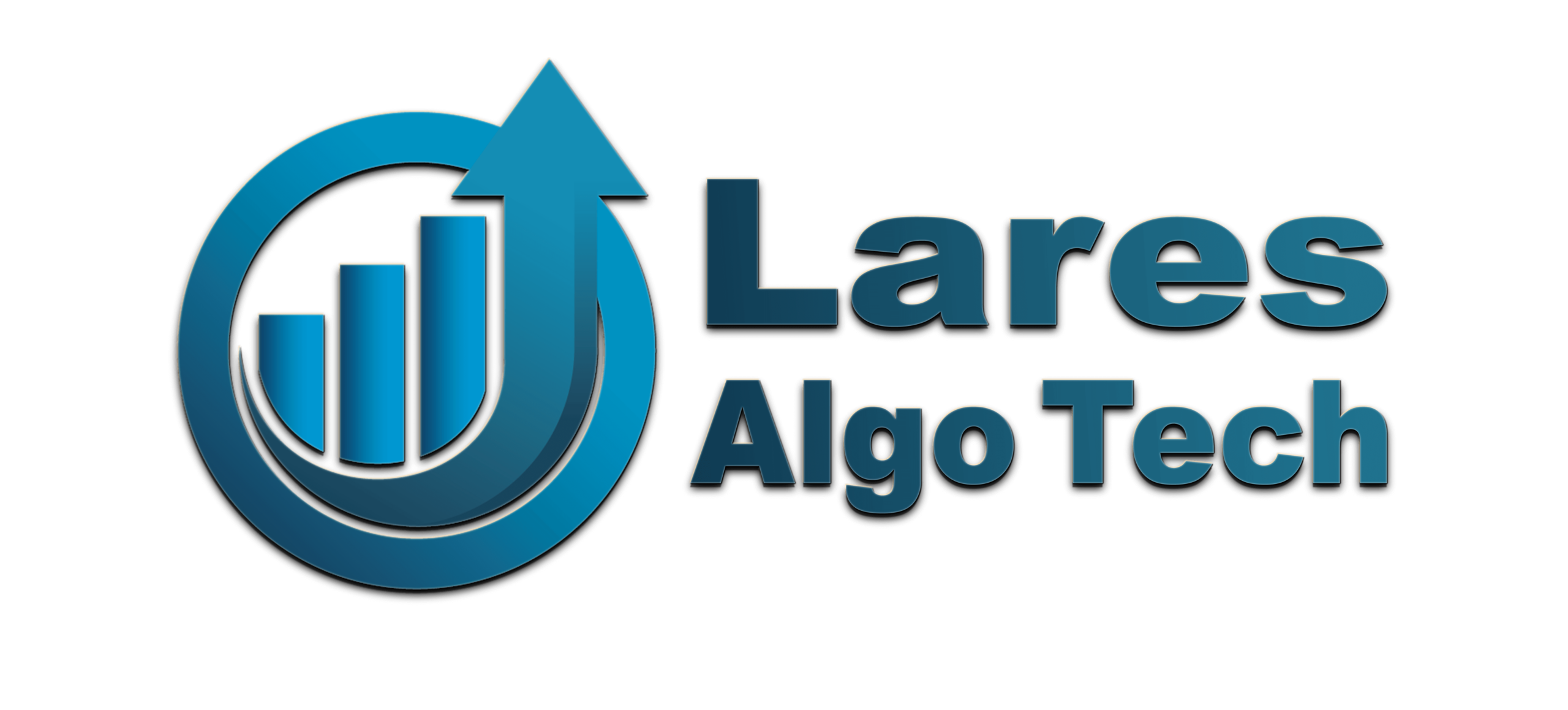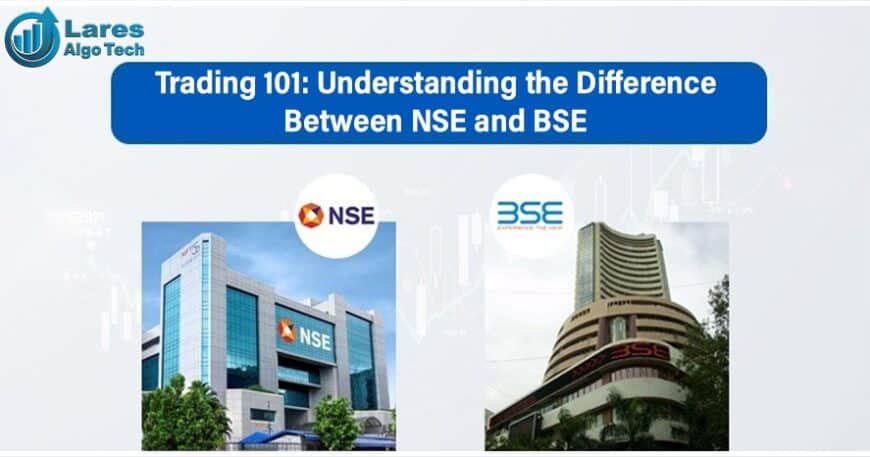Are you interested in algo trading, but confused about the Difference between NSE and BSE? If yes, then this blog post is for you. In this post, we will explain the history, features, advantages, and disadvantages of NSE and BSE, two of the largest and most popular stock exchanges in India. We will also give you some tips and recommendations on how to choose between NSE and BSE for algo trading, depending on your goals, risk appetite, and trading style.
But before we dive into the details, let us first introduce ourselves. Lares Algotech, we are the best and most reliable algo trading company in India, and we focus on content marketing by posting high-value informative content on our blog site. If you want to learn more about us and our services, please visit our website, or contact us for more information and guidance on algo trading.
Now, let us begin to understand the depth of the difference between NSE and BSE
History and Background of NSE and BSE
NSE and BSE are the acronyms for National Stock Exchange and Bombay Stock Exchange, respectively. They are the two leading stock exchanges in India and among the largest in the world. They both facilitate the trading of various financial instruments, such as stocks, bonds, derivatives, currencies, commodities, and mutual funds.
BSE is the oldest stock exchange in India, and the oldest in Asia. It was established in 1875 as the Native Share and Stock Brokers Association and later renamed as Bombay Stock Exchange in 1957. It is located in Mumbai, the financial capital of India, and has over 5,000 listed companies, with a total market capitalization of over Rs. 200 lakh crore as of April 2023.
Both NSE and BSE also offer various products and services, such as trading platforms, clearing and settlement systems, depository services, data and information services, education and awareness programs, and corporate social responsibility initiatives.
What is NSE?
The NSE stands tall as a modern marvel of India’s financial landscape. Established in 1992, it introduced electronic trading, revolutionizing how trades are executed. Home to the NIFTY 50 index, the NSE represents the top companies across various sectors, reflecting the health of our economy.
What is BSE?
Tracing its roots back to 1875, the BSE is Asia’s oldest stock exchange. It’s synonymous with the iconic SENSEX index, a benchmark of 30 well-established companies. The BSE has been instrumental in developing the Indian capital market, fostering growth and stability.
NSE vs BSE – A Comparative Analysis
While both exchanges serve as pillars of the Indian economy, they differ in scale and reach. The NSE boasts a larger market capitalization and a more extensive network, while the BSE prides itself on its rich history and strong foundation. Both offer robust trading platforms, but the NSE is often favored for its cutting-edge technology.
How to Choose Between NSE and BSE for Trading
Choosing the right exchange depends on your investment goals and preferences. Consider factors like liquidity, transaction costs, and the types of securities you’re interested in. Remember, diversification is key to managing risk.
The Role of Algo Trading in NSE and BSE
Algo trading, or algorithmic trading, uses computer programs to execute trades at lightning-fast speeds. This method is ideal for those who value precision and efficiency. At Lares Algotech, we specialize in crafting reliable algo trading strategies that cater to both NSE and BSE markets.
FAQs on the Difference between NSE and BSE
1. What are the operational hours of NSE and BSE?
Both exchanges operate from 9:15 AM to 3:30 PM, Monday through Friday.
2. Can investors trade on both exchanges?
Yes, investors can trade on both, provided they have accounts with registered brokers for each exchange.
3. How does algo trading enhance trading on NSE and BSE?
Algo trading minimizes human error, ensures timely execution, and can help in achieving better pricing.
4. What are the regulatory bodies overseeing NSE and BSE?
The Securities and Exchange Board of India (SEBI) regulates both exchanges to protect investors’ interests.
5. Can I trade on both NSE and BSE?
Yes, you can trade on both exchanges through your registered broker.
6. Which exchange is better?
Both exchanges offer their advantages and cater to different investor preferences. NSE is ideal for those seeking high liquidity and access to a broader range of instruments. BSE might be better suited for investors interested in smaller companies or those who prefer a more traditional trading experience.
7. Is the share price the same on both exchanges?
While the share price of a company generally remains consistent across both exchanges, slight variations can occur due to differences in market depth and liquidity.
8. Can a company be listed on both NSE and BSE?
Yes, many companies are listed on both exchanges to maximize their reach and visibility among investors.
Conclusion
Understanding the difference between NSE and BSE can be crucial for making informed investment decisions. By knowing the strengths and weaknesses of each exchange, you can choose the platform that best aligns with your investment goals and risk tolerance. As you explore the exciting realm of trading, consider the advantages of algo trading with Lares Algotech. Our expertise can guide you to smarter, more efficient trading strategies. Dive deeper into the world of finance with us, and take control of your financial future.
Lares Algotech: Your Guide to Successful Trading
At Lares Algotech, we believe in empowering investors with the knowledge and tools to navigate the world of algorithmic trading effectively. We offer a range of services, including educational resources, algorithmic trading strategies, and portfolio management solutions. Contact us today to learn more about how we can help you achieve your financial objectives.
Disclaimer: This blog is for educational purposes only and does not constitute financial advice. Please consult with a qualified financial advisor before making any investment decisions.





